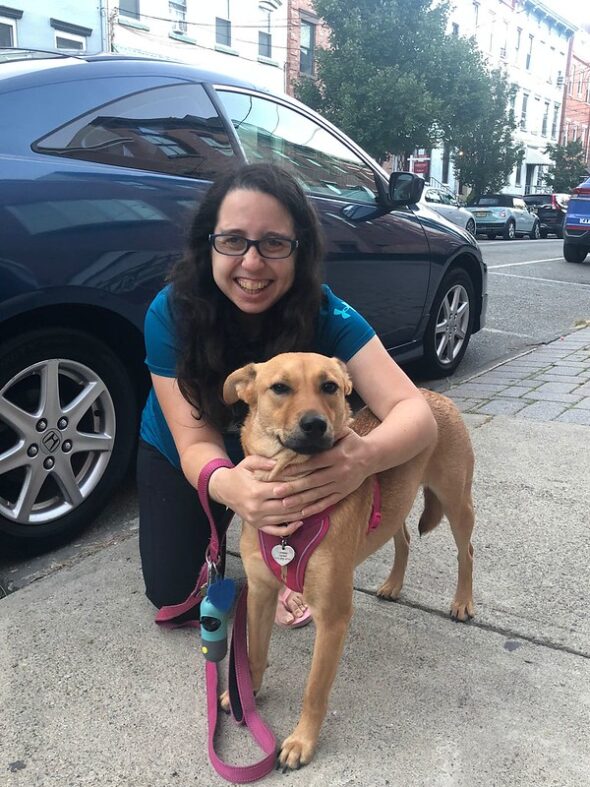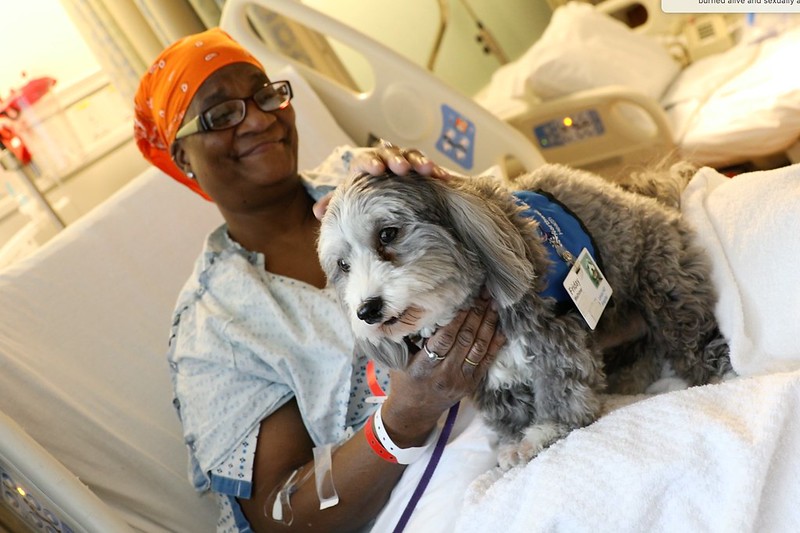The relationship between dogs and humans has always been comparable to that of two best friends, but the love of a dog can improve your mental health.
Nancy George-Michalson, who is the Executive Director at New York Therapy Animals, knows what it feels like to bring a smile to people’s faces with the help of trained therapy dogs.
“When you are interacting with a therapy dog, it actually brightens the room when you walk in,” George-Michalson said. “The best part is seeing the reactions and knowing that you’ve made a difference just even for a few minutes with somebody.”
George-Michalson has been a volunteer for 19 years, working for and founding the non-profit organization, which aims to help people in places such as healthcare facilities and schools with the assistance of trained, licensed and insured therapy dog teams.
But the impact dogs have on mental health is not only felt with the help of these organizations, people all over the world are helped by their dogs on a daily basis with relationships built on trust, companionship and loyalty.
In a survey conducted by For Better Mental Health 98 percent of pet owners consider their pet to be a member of the family and 74 percent of pet owners reported owning a pet led to better mental health.

Lindsey Barton, 30, of Hoboken, New Jersey, embraces her rescue dog Marnie. Photo by Jose Balderrama
Maggie Donovan, 30, described her dog Hope as “the best thing ever to happen to her.” As a person who has been battling through depression and anxiety for the past decade, building a relationship with Hope has really helped her daily routine.
“There is always somebody who is home and excited to see you, because I live alone,” said Donovan. “Especially during COVID too, just having a structure throughout the day and I think that really helped me, it kept me sane.” Donovan said.
According to the ASPCA in five households adopted a pet during the pandemic, that’s 23 million households. Early in the pandemic there was a waiting list to adopt dogs from shelters.
Lindsey Barton of Hoboken, New Jersey, has also noticed the importance in having to go out everyday in order to walk her dog, Marnie, and attend to her needs.
“It gets you out of the house everyday, ” she said. “I’m forced to go out and walk her even though I’m still working from home and otherwise I probably would have just stayed home, so I think that’s actually a big help in terms of mental health.”
Barton also said the love of a dog is pure and incomparable. She is amazed by the characteristics that dogs show which allow them to impact peoples’ lives.
“Unconditional love, they are very loyal creatures, she is very sweet, very docile,” Barton said. “She just wants to be happy, she wants everyone to be happy.”
George-Michalson said that the relationships between humans and dogs bring out the “Natural miracle drug for bonding,” Oxytocin. She said these bonds also facilitate other health benefits such as lowering blood pressure, decreasing heart rate, and lowering stress and anxiety levels.
George-Michalson said that since the pandemic began, 350 to 400 people have contacted her with an interest in being part of the organization. There is a lot of training involved.
“Their dogs have to meet the requirements and the human end of the leash has to meet the requirements as well,” George-Michalson said.


